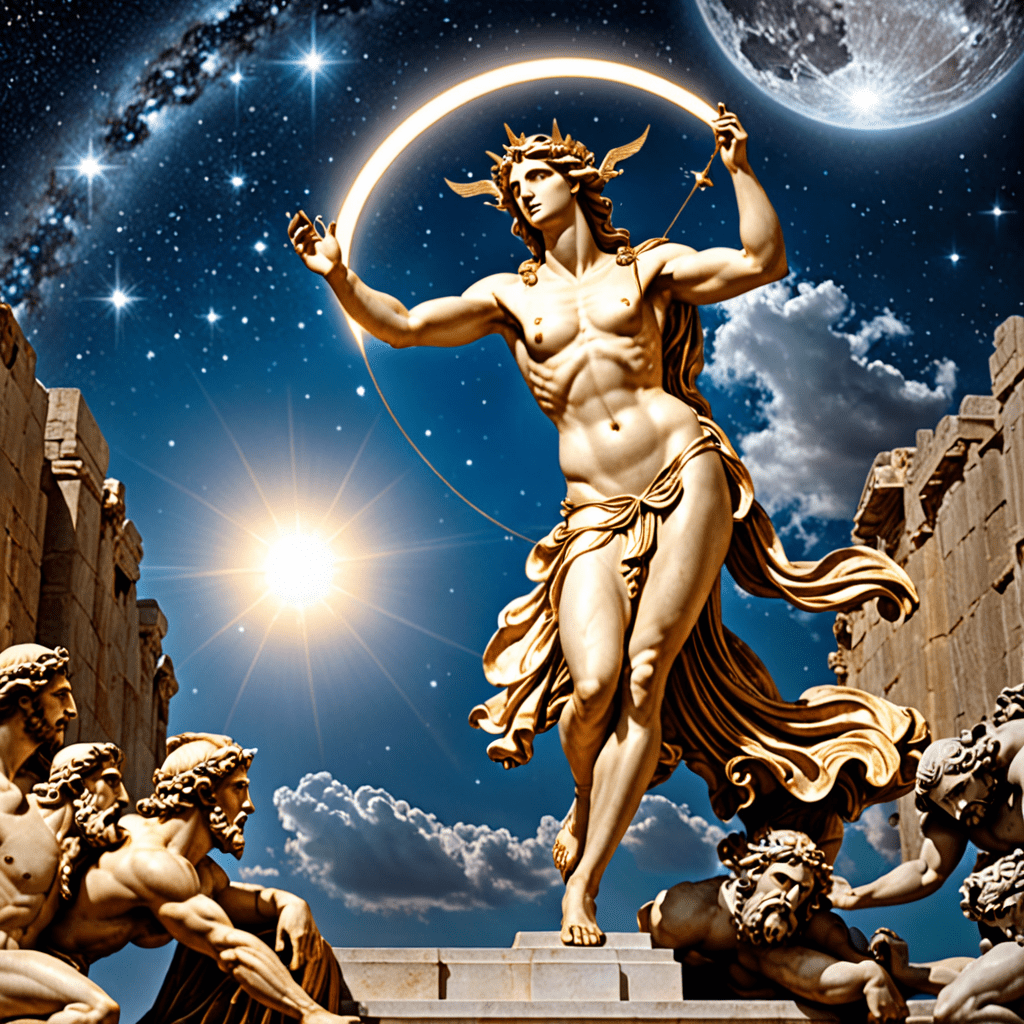The Influence of Greek Mythology on Astronomy
Evidence of the profound impact that Greek mythology had on various aspects of human knowledge and culture can also be observed in the realm of astronomy. Let’s explore how Greek myths and legends influenced and shaped our understanding of the cosmos.
1. Constellations and Mythical Figures
One of the most apparent intersections between Greek mythology and astronomy is the naming of constellations after mythical figures. For example, the constellation Orion is named after the great hunter in Greek mythology, who was known for his strength and prowess. Similarly, the Pleiades star cluster is linked to the seven daughters of the titan Atlas.
2. Planets Named After Greek Gods
The influence of Greek mythology extends to the names of planets in our solar system. The planets Mercury, Venus, Mars, Jupiter, and Saturn are named after Roman counterparts to the Greek gods Hermes, Aphrodite, Ares, Zeus, and Cronus, respectively. This nomenclature reflects the ancient connection between celestial bodies and deities in mythology.
3. Mythological Stories and Astronomical Phenomena
Many astronomical phenomena, such as eclipses, comets, and meteor showers, were interpreted through the lens of mythological stories in ancient Greece and other civilizations. These celestial events often inspired myths that sought to explain their occurrence, adding a cultural and narrative dimension to observations of the night sky.
4. Influence on Modern Astronomy
Even in the modern era, the influence of Greek mythology on astronomy persists. Astronomical terms like “Cassiopeia,” “Hydra,” and “Cygnus” continue to evoke the mythological origins of their namesakes, bridging the ancient and contemporary understanding of the universe.
By examining the ways in which Greek mythology has intertwined with the field of astronomy, we can appreciate the enduring legacy of ancient stories on our scientific pursuits and cultural imagination.
FAQ: The Influence of Greek Mythology on Astronomy
What is the connection between Greek mythology and astronomy?
Greek mythology has had a significant influence on astronomy, with many constellations and celestial objects named after figures from Greek myths. This link between mythology and astronomy dates back to ancient Greece when people used stories of gods and heroes to explain the movements of the stars and planets.
How did Greek mythology shape our understanding of the night sky?
Ancient Greeks associated various constellations with their mythology. For example, the constellation Orion is named after a legendary hunter in Greek mythology. These stories not only helped people remember the patterns of stars but also added richness and meaning to the night sky, making astronomy more engaging and relatable.
What are some examples of Greek mythological figures in astronomy?
Popular constellations like Cassiopeia, Pegasus, and Hercules are all named after characters from Greek mythology. Even planets in our solar system are named after Greek gods – like Venus, named after the goddess of love and beauty, and Mars, named after the god of war.
How has the influence of Greek mythology on astronomy persisted over time?
The legacy of Greek mythology in astronomy is enduring, as many of the names and stories continue to be used today. Astronomers and scientists still refer to stars, galaxies, and other celestial objects by their myth




